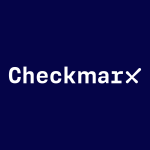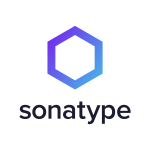You can write the code with AI. But when it comes to implementation, you must upgrade the bits of code that will support this and generate solutions based on that architecture. Then, you need comparable code bits. Therefore, AI can propose how much a specific function can be better optimized. So, AI can help stakeholders reach tasks quicker.
I decided not to use GitHub but developed my tool because I found it more efficient. I'm familiar with my tools, making them easier to use. I like being able to customize them to fit my workflow and the way I think.. Software development is like a personal workshop, and I tailor my version control to match my approach.
You have to do the crazy things to make real changes. Everything stays the same without them. Having a good backup system is crucial. If something goes wrong, you can roll back to a stable state. This mindset drives me to create tools that align with my thinking. These methods aren't easily accommodated on platforms like GitHub, so I prefer to use my tools.
The solution is the priority, not the specific tools or methods used. For example, imagine you need a simple solution, like a pizza kiosk locator. You're driving and want to find a pizza place quickly. The solution should focus on delivering this functionality, perhaps using Google Maps integration. The key is prioritizing the solution over the technical components.
The solution should allow you to press a button, see the distance to the nearest pizza place, navigate there easily, and even contact them if needed. Companies have resources and processes. The key lies in leveraging these resources to enhance business processes and stay competitive. The primary focus should always be improving efficiency and competitiveness through better combinations and evolution of these processes.
Despite its age, GitHub still holds value, especially in its older functions. However, to maintain relevance and satisfy existing and new users, GitHub should develop newer functions while preserving its traditional ones. This balance would ensure the community's satisfaction and integrate newer features. It seems they're already aware of this need and are working on it, so it's reasonable to expect gradual improvements over time.
GitHub has become a standard in software development, with millions of users, solutions, and a vast array of software packages and commits. It's reliable, proven, and fosters a strong social community. However, it's important to recognize that not all development processes fit within the GitHub model. In some cases, like ours, we have a unique setup where certain components, like front end and JavaScript libraries, can be hosted on GitHub, while others, like the database, are better managed internally with our tools.
Many solutions are inherently vendor-specific because they reflect the unique way each company conducts its business. These processes often give companies a competitive edge, and they're closely guarded as proprietary secrets. Exposing these processes to a wider audience could diminish that competitive advantage.
Lufthansa, for instance, relies on around ten thousand applications developed in-house and with partners to run their core business operations.
Similarly, as a competitor in Formula One racing, Ferrari undoubtedly has closely guarded secrets contributing to its success.
SAP encountered issues with its approach to creating minimal solutions for small and medium-sized businesses (SMBs). While they intended to cater to smaller companies, cutting functions led to a loss of value, making it no longer truly SAP. Similarly, many large companies adopting out-of-the-box SAP solutions found their processes becoming standardized, causing dissatisfaction. Companies wanted their unique processes preserved, not homogenized like competitors'.
I rate the overall product an eight out of ten.























